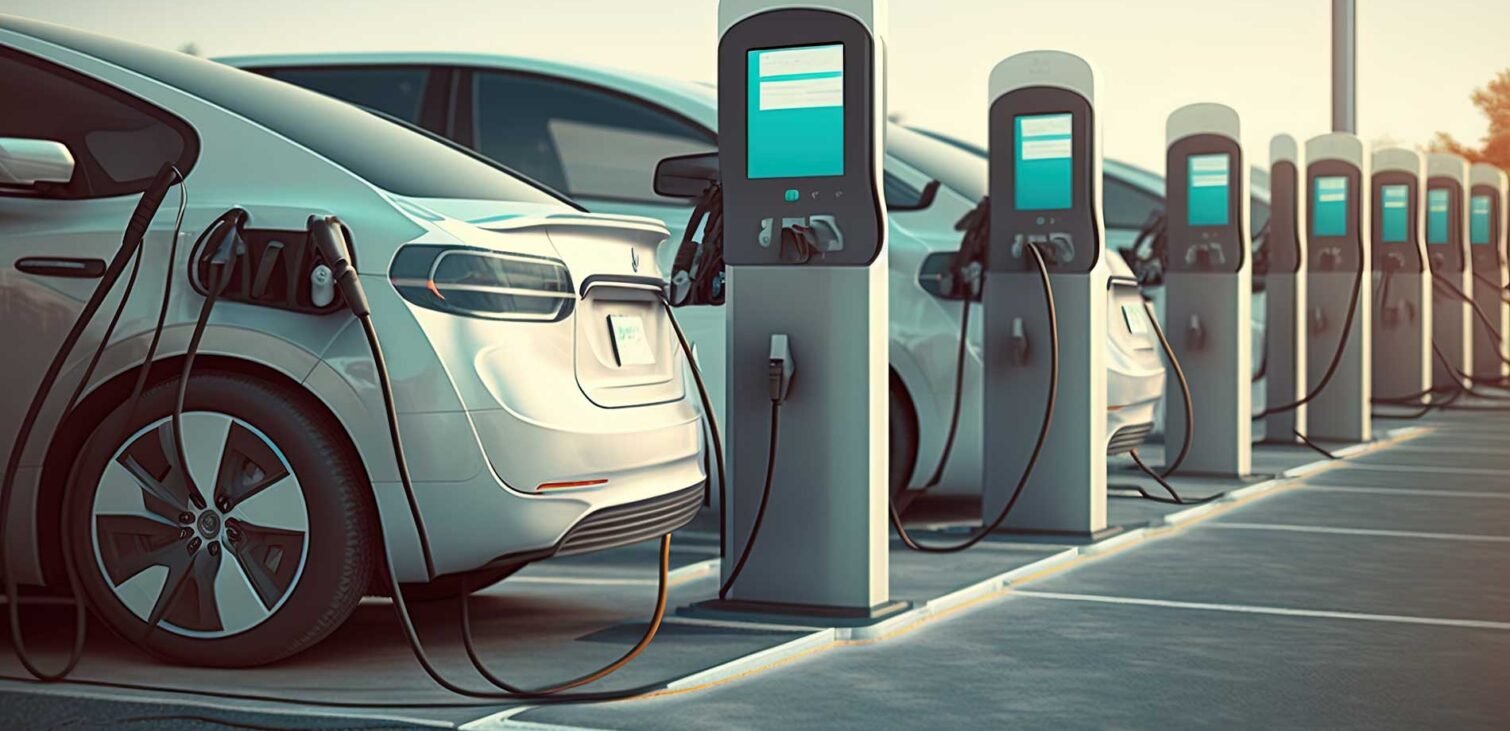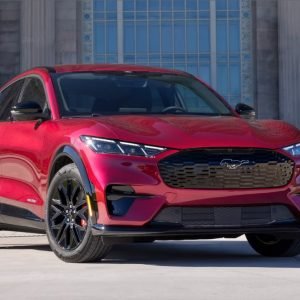Electric car are becoming more popular worldwide due to their energy efficiency and eco-friendly nature. However, choosing the right electric vehicle (EV) requires a bit of research and understanding of your specific needs. Factors like battery type, range, cost, and performance are key considerations. This guide will help you navigate the decision-making process with ease, offering insights tailored to audiences in the United States, Canada, and the European Union.
1. Charging Availability and Network Coverage in Your Area
One of the most critical factors to consider when buying an electric car is the availability of charging stations. Ensuring that there are adequate charging points in your frequently visited areas is essential to avoid inconvenience. Here are some key points to consider:
- Public Charging Stations: Check the coverage of public charging networks in your region. In the U.S., networks like Tesla Supercharger, ChargePoint, and Electrify America offer extensive coverage. In Canada, popular networks include Flo and Petro-Canada EV. In the EU, options like Ionity and Fastned are widespread.
- Home Charging: If public charging stations are limited, consider installing a personal home charger. Many online retailers offer discounts during sales events like Black Friday or Cyber Monday.
- Community Support: Joining local EV owner groups on social media can provide valuable insights and tips on the best charging locations and practices.
2. Understanding Electric Car Range and Its Suitability for Your Needs
The range of an electric vehicle, or the distance it can travel on a single charge, is a key factor in your decision-making process. The range depends on the battery size and the vehicle’s energy efficiency. Here’s what to look for:
Battery System
- Opt for a vehicle with a high-capacity battery that ensures a longer range and reduces the frequency of charging. Look for long-lasting lithium-ion batteries, which are the most common and reliable.
- Solid-state batteries are an emerging technology, promising longer life and better performance but are generally more expensive.
Driving Range
- Assess your daily driving needs. If you drive long distances regularly, look for models with a range of at least 250-300 miles (400-480 km) per charge.
- If your commute is short or you use the car mainly for city driving, a vehicle with a lower range might suffice, saving you money.
Charging Network and Speed
- Consider the charging speed of the car. Fast charging options can charge your battery up to 80% in about 30 minutes, while standard home chargers might take several hours.
- Verify the compatibility of the car’s charging system with the available infrastructure in your region.

3. Selecting the Right Car Based on Your Personal Needs
Choosing the perfect electric car depends on your specific lifestyle and requirements. Here are some questions to guide you:
- What’s the primary use of the car? Is it for daily commuting, or will it be a secondary family vehicle?
- What’s the size of your family? If you have a larger family, consider an electric SUV or a car with a spacious interior.
- What features do you prioritize? Do you prefer a vehicle with advanced entertainment systems and high-tech features, or are you more focused on safety and practicality?
- Safety Features: Look for advanced safety options like collision avoidance systems and lane-keeping assistance, especially if you frequently drive on highways.
By answering these questions, you can narrow down your choices to find the car that best suits your lifestyle.
4. Warranty and Maintenance for Electric Cars
No matter how well-built an electric car is, warranty and maintenance options are crucial considerations:
- Warranty Coverage: Ensure that the vehicle comes with a comprehensive warranty, especially for the battery system. Most manufacturers offer warranties ranging from 5 to 8 years for the battery, with mileage limits typically around 100,000 miles (160,000 km).
- Maintenance Costs: While electric cars generally have lower maintenance costs compared to traditional vehicles (no oil changes, fewer moving parts), battery replacement and other specific repairs can be expensive. Make sure to inquire about the average maintenance costs for the model you’re considering.
- Availability of Spare Parts and Service Centers: Check the availability of certified service centers and spare parts in your region. In the U.S. and Canada, brands like Tesla, Ford, and Chevrolet have extensive service networks. In the EU, popular brands like Renault, Volkswagen, and BMW also offer reliable support.
Average Prices for Popular Electric Vehicles
To help you get a better idea of pricing, here’s a table showing the average prices of popular electric cars in the U.S., Canada, and the EU:
| Model | U.S. (USD) | Canada (CAD) | EU (EUR) |
|---|---|---|---|
| Tesla Model 3 | $40,000 | $53,000 | €42,000 |
| Nissan Leaf | $28,000 | $38,000 | €34,000 |
| Ford Mustang Mach-E | $46,000 | $61,000 | €48,000 |
| Volkswagen ID.4 | $38,000 | $50,000 | €40,000 |
| BMW i4 | $55,000 | $72,000 | €60,000 |
Note: Prices may vary based on location, taxes, and dealer offers.
Final Tips for Choosing Your Electric Car
- Research and Test Drive: Visit showrooms and take test drives of the shortlisted models to get a feel for the car.
- Consider Incentives: Many governments offer incentives and rebates for electric vehicle purchases, which can help lower the overall cost.
- Seek Advice: Don’t hesitate to ask for recommendations from current EV owners. They can offer valuable insights about real-world performance and reliability.
5. Evaluating the Cost of Ownership for Electric Vehicles
Many people are drawn to electric cars because of their potential to save money in the long run. However, understanding the total cost of ownership (TCO) is vital. TCO includes:
- Initial Purchase Price: While electric vehicles might have a higher upfront cost compared to gasoline cars, this gap is closing as manufacturing scales up and technology advances.
- Running Costs: EVs have lower running costs due to cheaper electricity prices and the absence of fuel expenses. On average, charging an electric car costs about $0.10 to $0.15 per mile in the U.S., while gasoline cars often cost $0.20 to $0.30 per mile.
- Maintenance Costs: Since electric vehicles have fewer moving parts, maintenance is simpler and often less expensive. There’s no need for oil changes, exhaust system repairs, or transmission maintenance.
- Depreciation: EVs can depreciate faster than traditional cars, particularly in markets where subsidies have artificially lowered prices. However, models with longer ranges and better battery longevity hold their value well.
6. Exploring Incentives and Tax Benefits for Electric Cars
Governments worldwide are encouraging the adoption of electric vehicles through various incentives, rebates, and tax breaks. Here’s what you need to know about the incentives available in major markets:
United States
- Federal Tax Credit: The U.S. offers a federal tax credit of up to $7,500 for qualifying electric vehicles. The exact amount depends on the battery capacity and the manufacturer’s sales volume.
- State Incentives: Additional incentives may be available at the state level. For example, California offers rebates up to $4,500, while states like New York and Colorado offer credits ranging from $2,000 to $5,000.
Canada
- Federal Rebates: Canada’s iZEV program provides a rebate of up to CAD 5,000 for eligible electric vehicles.
- Provincial Incentives: Provinces like British Columbia and Quebec offer additional rebates, making EVs even more affordable.
European Union
- Country-Specific Incentives: Many EU countries provide substantial incentives. For instance, Germany offers a subsidy of up to €9,000, while France provides up to €7,000.
- Zero Emission Zones (ZEZ): In cities like London and Paris, driving an electric vehicle can save you from congestion charges and provide access to low-emission zones.
7. Understanding Battery Technology and Longevity
The heart of every electric vehicle is its battery. Understanding the type of battery and its expected life span can help you make an informed choice:
Types of EV Batteries
- Lithium-Ion Batteries: These are the most common batteries used in EVs today. They offer a good balance between energy density, weight, and longevity. However, they can degrade over time, especially if frequently exposed to high temperatures or rapid charging.
- Solid-State Batteries: An emerging technology that promises higher energy density and faster charging. Although not yet widely available, they represent the future of EV batteries with improved safety and longer life spans.
Battery Life and Degradation
- On average, EV batteries are designed to last between 8 to 15 years, depending on the model and usage conditions. Most manufacturers offer a battery warranty of 8 years or 100,000 miles (160,000 km).
- Battery health can be monitored through the car’s onboard system. It’s advisable to avoid frequently charging to 100% or letting the charge drop below 20% to prolong battery life.
8. Comparing Electric Car Models in Different Markets
To make your decision easier, here’s a comparison of popular electric vehicle models across different markets, focusing on features, range, and pricing.
Model Range (Miles/KM) Top Features U.S. Price (USD) Canada Price (CAD) EU Price (EUR) Tesla Model 3 358 miles / 576 km Autopilot, Supercharging, Minimalist UI $40,000 $53,000 €42,000 Nissan Leaf 226 miles / 364 km Affordable, ProPilot Assist $28,000 $38,000 €34,000 Ford Mustang Mach-E 300 miles / 482 km Stylish Design, Advanced Safety $46,000 $61,000 €48,000 Volkswagen ID.4 275 miles / 443 km Spacious, Adaptive Cruise Control $38,000 $50,000 €40,000 BMW i4 365 miles / 587 km Luxury Interior, High Performance $55,000 $72,000 €60,000 Note: Prices may vary due to taxes, fees, and regional differences.
9. The Future of Electric Vehicles: What’s Next?
The electric vehicle industry is evolving rapidly, with new advancements in battery technology, autonomous driving, and charging infrastructure. Here’s what to expect shortly:
- Wireless Charging: Inductive charging pads could make it easier to charge your car without plugging in.
- Enhanced Battery Tech: The development of graphene batteries and solid-state batteries promises to increase range, reduce weight, and enhance safety.
- Autonomous Driving: Many electric vehicles are incorporating advanced driver-assistance systems (ADAS), paving the way for fully autonomous cars.
Governments and automakers are investing heavily in sustainable transport solutions, aiming for a future where electric cars dominate the roads. As a consumer, this means more options, better features, and lower costs in the years ahead.
To learn more about the electric carsource : Wkipedia







